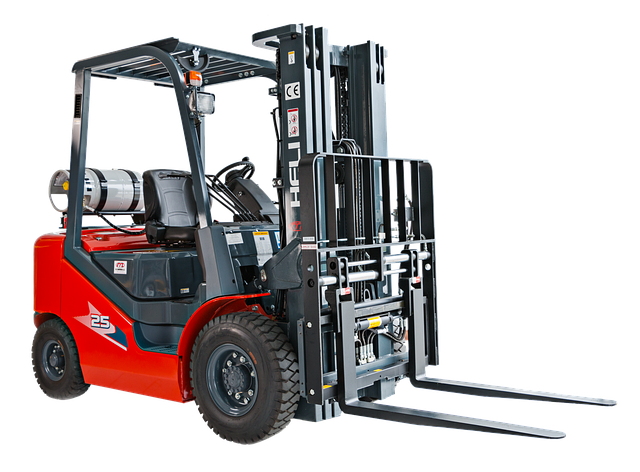Forklift Company in the UK: Opportunities in Logistics
The forklift industry forms a crucial backbone of the UK's logistics and supply chain sectors, providing essential material handling capabilities across warehouses, distribution centers, and manufacturing facilities nationwide. As the logistics sector continues to evolve with growing e-commerce demands and changing supply chain dynamics, forklift operations have become increasingly sophisticated. This evolution has created a diverse range of career paths for individuals interested in this field, from equipment operation to management positions, reflecting the industry's technological advancement and professionalization.

What the Role Involves in Forklift Operations
Forklift operators primarily handle the movement, loading, and unloading of materials within warehouses and distribution centers. Their daily responsibilities typically include operating various types of forklift equipment, conducting safety checks before operation, accurately stacking and retrieving goods, maintaining inventory records, and ensuring workspace organization. Beyond the physical operation of equipment, modern forklift roles often involve using warehouse management systems and digital tracking technologies to optimize logistics processes. Operators must maintain constant awareness of their surroundings, communicate effectively with team members, and adhere strictly to health and safety regulations to prevent workplace accidents.
Skills Employers Look For in Forklift Personnel
Employers in the forklift sector seek candidates with both technical competencies and strong professional attributes. The foundation of any forklift career is proper certification and training on specific equipment types. The most widely recognized qualification in the UK is the RTITB (Road Transport Industry Training Board) certification, though other accredited training providers also offer recognized qualifications. Beyond certification, employers value practical skills including spatial awareness, mechanical aptitude, and attention to detail.
Equally important are soft skills such as reliability, punctuality, and the ability to work effectively under pressure. Communication skills are increasingly emphasized as logistics operations become more integrated, requiring operators to coordinate with various departments. Physical stamina remains relevant, but modern equipment has reduced much of the physical strain compared to earlier generations of forklifts. Many employers also prioritize candidates with basic digital literacy as warehouse management systems become more technologically advanced.
Why Forklift Companies Are Growing in the UK
The forklift sector in the UK has experienced consistent growth driven by several interconnected factors. E-commerce has fundamentally transformed the logistics landscape, with online retail requiring vast warehouse infrastructures to manage inventory and fulfill orders quickly. This digital transformation has increased demand for efficient material handling solutions across the country.
Brexit has also influenced the sector by necessitating changes to supply chain configurations and creating opportunities for domestic logistics operations as companies adapt to new trading relationships. Additionally, technological innovation has played a crucial role in the industry’s development. Advanced forklift models now incorporate features like automation, electric power systems, and enhanced safety mechanisms, making operations more efficient and sustainable.
The UK government’s focus on infrastructure development, including the construction of new logistics hubs and distribution centers, has further stimulated growth in the sector. Environmental considerations have also shaped the industry, with increasing adoption of electric forklifts and other sustainable technologies responding to both regulatory requirements and corporate sustainability initiatives.
Career Progression Opportunities in the Forklift Industry
The forklift industry offers multiple avenues for career development beyond entry-level positions. Experienced operators often advance to specialist roles operating more complex equipment or handling sensitive materials. Team leader and supervisory positions typically become available after demonstrating consistent performance and leadership potential. With additional qualifications and experience, operators can progress to warehouse management positions, overseeing entire material handling operations.
Many professionals also transition into training and assessment roles, helping to certify new operators and maintain safety standards across organizations. Technical positions focusing on forklift maintenance and repair provide alternative career paths for those with mechanical aptitudes. Some professionals move into logistics planning, fleet management, or health and safety specializations, particularly as they gain broader supply chain knowledge.
Current Industry Challenges and Future Outlook
The forklift industry faces several challenges, including addressing skill shortages through improved recruitment and training initiatives. Integration of automated and semi-automated technologies is transforming workplace dynamics and creating demand for new skill sets. Environmental regulations continue to push the sector toward more sustainable practices, accelerating the transition to electric vehicles and alternative energy sources.
Looking ahead, the industry’s future appears promising with projected continued growth in e-commerce driving warehouse expansion. Technological developments like automated guided vehicles (AGVs) and remote-operated forklifts are likely to complement rather than replace human operators in the near term. The emphasis on sustainability will continue to shape equipment development and operational practices. Training methods are evolving to incorporate virtual reality and simulation technologies, potentially making skill development more accessible and efficient.
The forklift industry remains an essential component of the UK’s logistics infrastructure, offering stable employment opportunities and diverse career paths as it adapts to economic, technological, and environmental changes.




